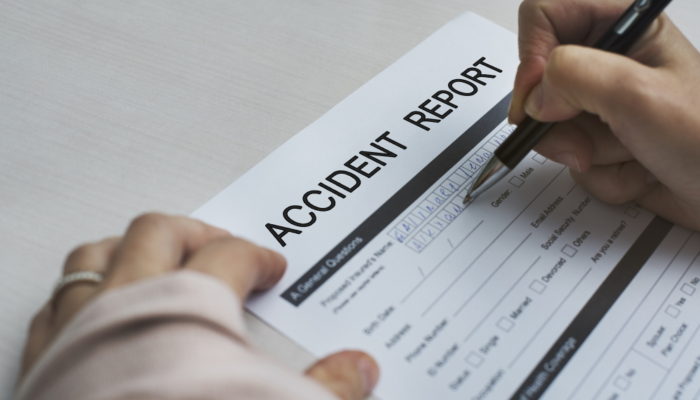Historically, the age of majority (becoming an adult) was set at twenty-one (21) in most states. However, after the 1971 ratification of the 26th Amendment to the U.S. Constitution giving eighteen (18) year olds the right to vote in federal elections, most states, and later all states, lowered their age of majority to eighteen (18) – (FC § 6502; 52 USC § 10701).
At age eighteen (18), a person has reached an important milestone. They are now adults in the eyes of the law. An individual can rent their own apartment, take charge of their finances and even buy a car on their own, all without a parent’s consent or assistance. Said newly minted adult can now enter into legal contracts and vote in elections.
When a child turns eighteen, he or she legally becomes an adult, and as the parent of that adult, the parent no longer has authority over that child’s medical, financial, or educational information.
The truth is, no matter how old the child, a parent still has the right to make and enforce the rules of their own home. An eighteen year old must follow the rules just as much as their much younger sibling. Of course, as children get older and mature, they can earn more privileges and have more responsibilities.
In addition to the emotional aspects, both parent and adult child will come face to face with certain legal realities. Specifically, the rights as a parent diminish when their child turns eighteen, including the right to know anything about their finances, medical condition, or even school records. Durable Powers of Attorney (both medical and financial) executed by the said “child” can provide authorization for the parent to access accounts, records and make decisions if the child becomes disabled or incapacitated.
For example, when a child turns eighteen, the funds in their account become available but only to the said adult child and parents will be unable to access the money without a Power of Attorney. Parents may overlook the basic documents needed to ensure their continued involvement in their children’s affairs after their child turns eighteen. Further, if a medical issue arises, parents can be involved in the decision-making process with these documents (i.e., Healthcare). A streamlined way to get the subject documents needed with the least amount of aggravation and at a reasonable cost is to consult with an attorney ahead of time versus needing a time-consuming and expensive legal proceeding called a Guardianship after the fact.
Turning eighteen is a significant highlight as one’s child steps into his or her adulthood. The 18th birthday milestone carries many great privileges as well as serious legal responsibilities and potential consequences. When a child turns eighteen, they will become an adult in the eyes of the law. Said child will gain all the rights and responsibilities of an adult, except for the legal consumption of alcohol. Once eighteen, said child will have the right to be independent from the control of their parents, and parents no longer have to support them. A significant difference in one’s child turning eighteen is that said child will no longer be entitled to the protection of the juvenile court system. At age 18, the “adult” child will be criminally charged as an adult for even minor offenses. Parents are no longer required to accompany their children as well. Often, parents do not know their child has been charged and are left out of the decision-making process. Once the child turns eighteen, or goes away for college, discuss with children about their legal rights and what to do if they need legal assistance.
A child’s age may have caught up with their attitude that they are independent adults, and then parents may wonder what obligations they still have regarding their children now that they are eighteen. The answer, according to the law, is zero! They are essentially on their own.
Again, the milestone also carries severe legal implications for the parents as well. Unless one’s child formally agrees, certain information will be withheld from parents. Examples are banking and credit information, grades, and medical records. Parents’ access to medical information about their now adult child will be limited by HIPAA privacy rules, irrespective of the said child still being on their family’s medical insurance policy. Also, if the now adult child has his or her own bank account and the parent’s name is not on the account, the parent will no longer be able to access the account or bank information, even in emergencies. Said child will not need their parent’s consent or formal driver’s training to obtain their driver’s license. They will be personally responsible for their own driving tickets and accidents, as well as the mandatory obligation to have proof of auto insurance.
A child can get married, decide their own medical treatment, make a Last Will & Testament, vote in elections, sue and/or be sued, and enter into their own contracts such as getting a loan, buying a car, or renting an apartment. If entering into an apartment contract, remind the son or daughter that it is advisable to purchase renter’s insurance to cover their possessions and any liability on the premises. Let a child know that if they do not pay their rent on time, the landlord can give them three days’ (3) notice or other applicable notices before seeking a court to evict them. Also, share with them that landlords must provide “fit and habitable” living conditions and to reach out to a local building inspector if the landlord allows conditions to become unbearable, and they cannot live in the apartment. Explain to adult children that, although written contracts protect against dishonesty and poor memory, they should be careful to review the entire contract, since the language may be confusing and favor the other party. Remind adult children not to sign a contract until they are sure they understand it. If they do not keep their part of the bargain, they can get sued. An adult son or daughter can also get sued for not paying their credit card charges. Make sure they understand the interest rates, payment amount, due dates, and service charges before signing loan papers. Turning eighteen means an adult child is also responsible for serving on a jury if called, paying taxes on any earnings, facing any lawsuits or criminal charges as an adult, and if they are a male, registering for the military draft.
While an adult child is attending college, it is important to remind them of possible legal consequences for their behavior. An individual may be considered “disturbing the peace” if engaged in rowdy behavior, fighting, playing loud music, or creating unreasonably loud noise. Also keep in mind, hazing is any method of initiation into a fraternity, sorority or other student organization which is likely to cause physical harm or personal degradation. It is a crime punishable up to a substantial monetary fine and possible jail time. Remind them that even on a college campus where other underaged adults might be doing it, it is a crime to alter any driver’s license or use someone else’s in any way for identification, including buying alcohol or trying to enter a bar. If one’s child is convicted of any drug or alcohol related offense and is under twenty-one (21) years of age, his or her license can be suspended for a period of time, in addition to any monetary or other penalty imposed for the conviction.
In summary, keep the lines of communication open with children. Even though a child may be legally an “adult”, he or she can still need and get guidance from their parents. If the reader has any questions about this article or has any legal issues or concerns, please contact the law office of CASERTA & SPIRITI at 305-463-8808(o) or email at info@csgfirm.com .










